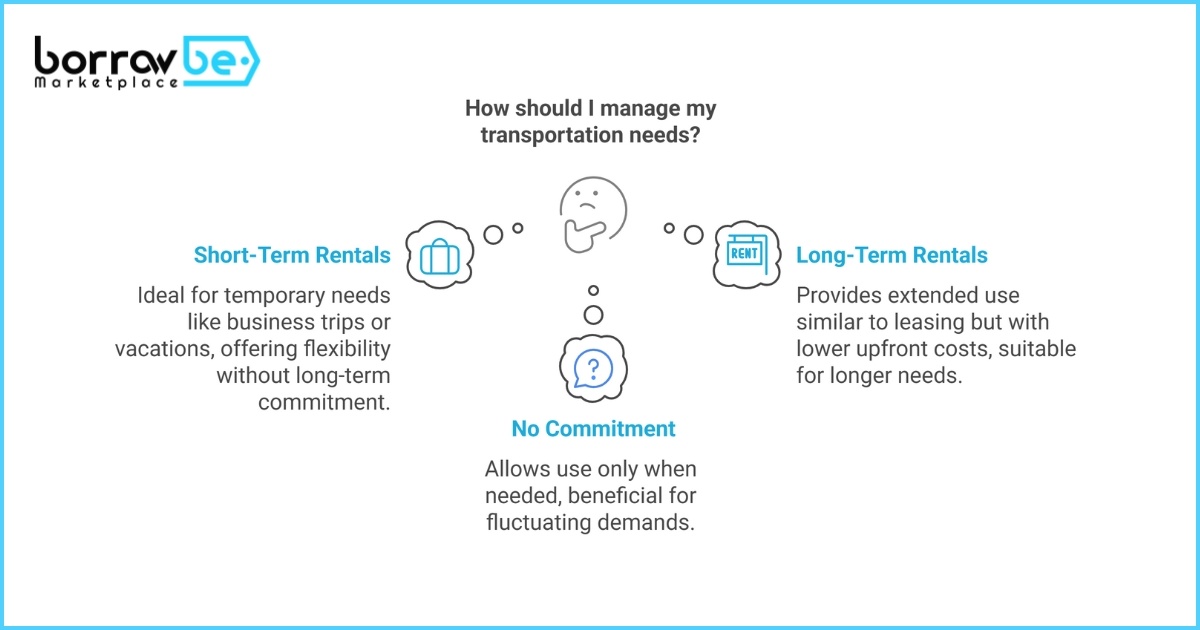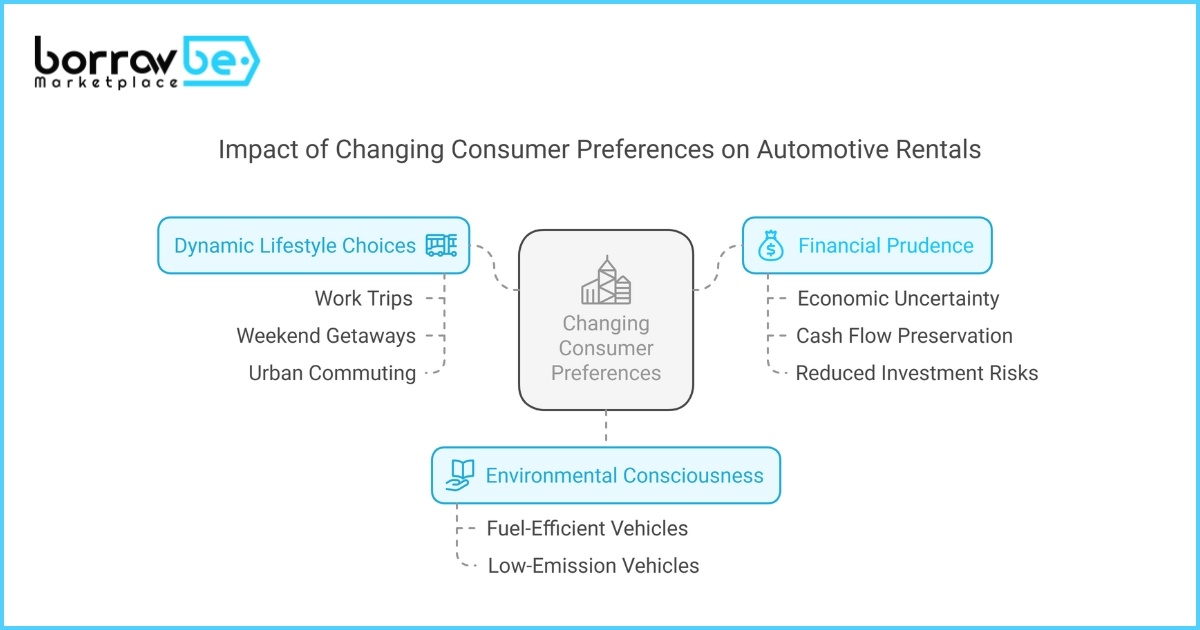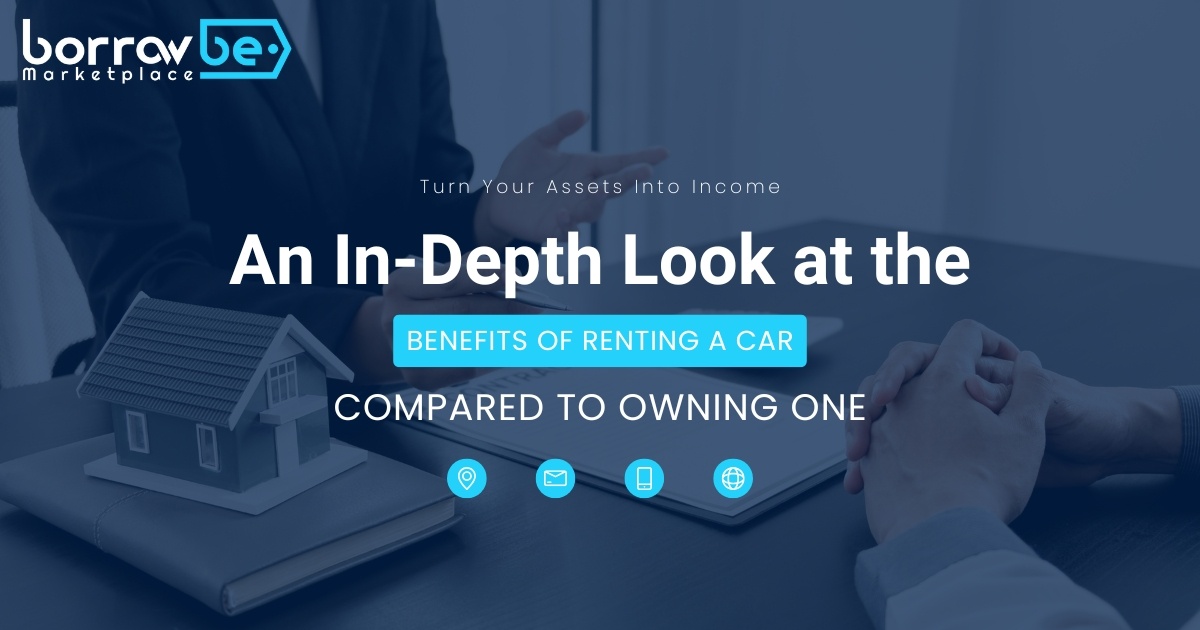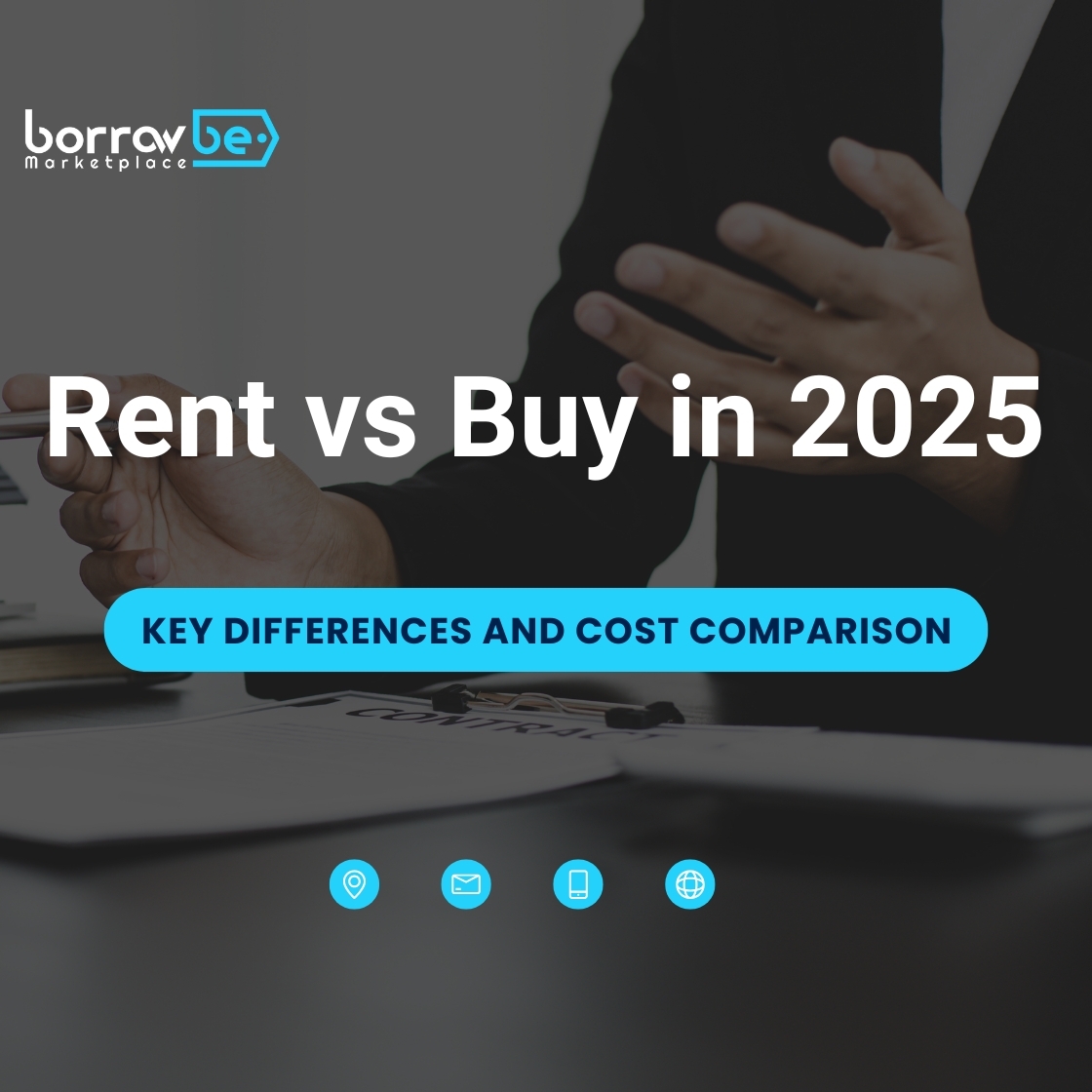Renting a car has emerged as an attractive alternative to traditional car ownership for many drivers today. With evolving lifestyles, fluctuating economic conditions, and rapid advancements in automotive technology, the debate between renting and owning is more relevant than ever. This article delves into the many advantages of renting a car—from significant cost savings and enhanced flexibility to environmental benefits and modern technological features. By examining these factors in detail, readers can make informed decisions that align with their financial goals, lifestyle, and environmental values.
In today’s fast-paced world, driving needs vary significantly from person to person. Some require a vehicle only for short trips, while others need a reliable ride for extended journeys. Renting a car offers a tailored solution to meet these diverse requirements without the long-term commitments or hidden financial burdens associated with ownership. Through clear explanations, bullet points, tables, and expert insights, this comprehensive guide will illuminate why renting can be a smarter choice.
Economic Advantages of Renting a Car
Economic factors play a critical role in the decision to rent rather than own a car. As fuel prices, insurance costs, and depreciation continue to influence the total cost of car ownership, renting emerges as a viable, cost-effective alternative. The following sections break down the financial benefits in detail.
Cost Savings
Renting a car typically incurs lower upfront costs compared to purchasing a new or even a used vehicle. Unlike owning a car—which requires a substantial down payment, loan interest, and various fees—rental arrangements are often structured with short-term expenses that can be easily managed within a monthly budget.
- Lower Initial Investment: Renting eliminates the need for a significant upfront payment, allowing you to allocate funds to other pressing needs.
- Predictable Expenses: Rental agreements often include insurance and maintenance packages, reducing the risk of unexpected costs.
- Reduced Long-Term Financial Burden: Over time, the expenses associated with upkeep, repairs, and depreciation can be far greater than the periodic fees for renting.
Industry experts emphasize that for individuals who do not require a vehicle on a daily basis, renting can lead to substantial savings. In fact, studies from reputable financial research institutions have shown that renters can save thousands of dollars per year compared to owners, especially when factoring in maintenance and depreciation expenses.
Moreover, renting offers the flexibility to select a vehicle that suits your current needs without being locked into a long-term financial commitment. Whether you require an economical car for daily commutes or a spacious SUV for a family trip, renting allows you to switch based on your circumstances without incurring the high costs of a new purchase.
Avoiding Depreciation
Depreciation is one of the hidden financial drains of car ownership. New cars typically lose a significant portion of their value within the first few years, making them a risky long-term investment. Renting, on the other hand, transfers the depreciation burden to the rental company.
- No Asset Depreciation: When renting, you avoid the inevitable loss in value that comes with owning a car.
- No Resale Worries: Owners often face challenges when it comes time to sell their depreciated vehicle, whereas renters simply return the car once the rental period ends.
- Flexibility to Upgrade: Renting allows you to take advantage of newer models with the latest features without being tied down by an asset that loses value over time.
Financial experts note that avoiding depreciation is particularly beneficial for those who do not drive daily or require a vehicle only for specific occasions. This cost-saving aspect not only reduces financial risk but also offers peace of mind when managing personal finances.
Flexibility and Convenience
The modern consumer values flexibility and convenience, and renting a car delivers on both fronts. With an array of rental options available, drivers can choose a vehicle that meets their current needs and lifestyle without the responsibilities of ownership.
Variety of Vehicles
One of the most appealing aspects of renting a car is the ability to choose from a wide range of vehicles. Whether you’re looking for an eco-friendly compact car, a luxury sedan, or a rugged SUV for off-road adventures, rental companies offer an impressive selection.
- Tailored Vehicle Selection: Choose the exact model, make, and features that align with your trip requirements.
- Seasonal or Occasional Needs: For special events or specific weather conditions, renting gives you the option to select a vehicle that suits the occasion.
- Latest Models: Rental fleets are frequently updated, allowing you to enjoy the latest technology and safety features.
This variety ensures that your transportation needs are met without the constraints of a single vehicle choice. Instead of compromising with one car that may not serve all your purposes, renting gives you the freedom to switch between vehicles as needed. This dynamic approach not only enhances your driving experience but also contributes to smarter budgeting and asset utilization.
Short-term vs Long-term Needs
Renting offers unparalleled flexibility when it comes to the duration of vehicle usage. Unlike car ownership, which is a long-term commitment, renting provides a vehicle for as long—or as short—a period as you need.
- Short-Term Rentals: Ideal for business trips, vacations, or temporary transportation needs without a long-term commitment.
- Long-Term Rentals: Some companies offer extended rental agreements that rival the convenience of leasing without the high upfront costs.
- No Commitment: Renters can opt for a car only when required, which is particularly beneficial for those with fluctuating transportation demands.
The ability to choose between short-term and long-term rentals enables drivers to manage their transportation needs based on current circumstances. This flexibility not only saves money but also allows drivers to enjoy the benefits of a modern vehicle without the long-term obligations of ownership.
Maintenance and Upkeep
One of the significant burdens of car ownership is the ongoing responsibility of maintenance and repairs. Renting a car largely eliminates these concerns, as rental companies typically manage upkeep and routine service.
Hassle-free Repairs
Owning a car comes with the constant worry of unexpected repairs and maintenance costs. Rental agreements, however, often include comprehensive maintenance packages, ensuring that you experience minimal disruptions during your rental period.
- Inclusive Maintenance: Many rental plans cover routine maintenance, reducing the need for additional out-of-pocket expenses.
- Quick Service Turnarounds: Rental companies ensure that any issues are addressed promptly, so you’re rarely without a vehicle.
- Expert-Managed Repairs: Repairs and servicing are managed by professionals, ensuring quality and efficiency.
Drivers benefit from knowing that they will not have to handle the complexities of car repairs or worry about the hidden costs associated with unexpected breakdowns. This service-oriented approach not only enhances convenience but also contributes to a more predictable transportation budget.
Lower Unexpected Costs
When you own a car, the possibility of unexpected expenses—from engine repairs to tire replacements—can disrupt your financial planning. Renting a car shifts these unpredictable costs to the rental company, offering a smoother, more predictable experience.
- Transparent Pricing Models: Rental agreements typically outline all potential costs upfront, helping you avoid surprise charges.
- No Repair Bills: As the rental company takes care of repairs, you are spared from additional expenses that can arise from vehicle malfunctions.
- Budget-Friendly Options: With predictable monthly or daily rates, you can plan your transportation expenses more accurately.
This reliability in pricing allows drivers to budget more effectively, ensuring that transportation remains an affordable component of their overall expenses. Financial predictability is especially valuable in uncertain economic times, making renting an attractive option for many.
Financial and Investment Benefits
Choosing to rent a car can have far-reaching financial benefits beyond just immediate cost savings. This section explores how renting preserves credit, enhances cash flow, and even creates opportunities for asset monetization.
Preserving Credit and Cash Flow
When you opt to rent a car, you free up capital that would otherwise be tied up in a depreciating asset. This preserved capital can be redirected towards investments, savings, or other financial priorities, ensuring a healthier financial portfolio.
- Enhanced Liquidity: Renting keeps your money available for other investments, emergencies, or personal growth opportunities.
- Credit Preservation: With no long-term loan commitments, you avoid the risks of damaging your credit due to missed payments or unforeseen expenses.
- Flexible Budgeting: Lower upfront costs and predictable monthly fees contribute to a more stable cash flow.
Financial advisors recommend renting as a strategic choice for those who prioritize liquidity and flexibility in their financial planning. This approach not only safeguards your financial well-being but also empowers you to seize other lucrative opportunities as they arise.
Opportunity for Asset Monetization
For those who view their assets as potential income streams, renting can be a way to keep your options open while still enjoying the benefits of a quality vehicle. Renting out your own car when it’s not in use or using rental income to offset other costs is an increasingly popular trend.
- Turn Your Assets Into Income: Learn more about how to optimize asset usage and generate additional revenue by exploring Turn Your Assets Into Income.
- Monetizing Underutilized Assets: Renting allows you to leverage your existing assets to meet temporary needs while potentially earning money on the side.
- Financial Flexibility: By not locking funds into a depreciating asset, you can invest in other ventures or maintain a robust emergency fund.
This financial flexibility can be especially appealing in today’s unpredictable economic climate. It not only improves your current financial situation but also opens doors to future investments and opportunities. For individuals looking to balance transportation needs with broader financial goals, renting a car provides a dynamic solution that aligns with modern asset monetization strategies.
Environmental and Technological Advantages
Renting a car is not only a financially savvy choice—it also offers notable environmental and technological benefits. As society moves towards sustainability and innovation, renting supports these global trends by enabling access to cleaner, more efficient vehicles.
Fuel Efficiency and Emissions
Environmental concerns are at the forefront of modern decision-making, and the automotive industry is no exception. Renting a car can offer access to newer, more fuel-efficient models that help reduce harmful emissions and lower your carbon footprint.
- Access to Eco-Friendly Vehicles: Rental companies frequently update their fleets with models that feature advanced fuel-saving technologies and reduced emissions.
- Reduced Environmental Impact: Using a more efficient vehicle for short-term needs helps lower overall pollution levels compared to maintaining an older, less efficient car.
- Sustainability Focus: For environmentally conscious consumers, renting allows you to align your transportation choices with your values.
Data from reputable environmental studies indicates that regularly upgrading to more fuel-efficient vehicles can substantially decrease greenhouse gas emissions over time. This trend is supported by innovations in hybrid and electric vehicle technology, making rental options a smart choice for those who prioritize eco-friendliness.
Latest Features and Safety
Technological advancements in the automotive industry are rapidly changing the driving experience. Renting a car gives you immediate access to the latest safety and convenience features without the burden of constantly updating your own vehicle.
- Cutting-Edge Technology: Modern rental fleets are equipped with advanced navigation, connectivity, and driver-assist systems that enhance safety and comfort.
- Regular Upgrades: Rental companies invest in frequent fleet upgrades, ensuring that you benefit from the latest technological innovations and safety standards.
- Enhanced Driver Experience: Access to modern infotainment systems, improved fuel economy, and robust safety features contribute to an overall better driving experience.
Experts in automotive technology emphasize that keeping up with the latest innovations is essential for a safe and efficient driving experience. Renting a vehicle not only provides this opportunity but also ensures that you are not burdened with the costs associated with continuously updating an owned car.
Comparative Analysis: Renting vs Owning
Understanding the differences between renting and owning a car can be best visualized through direct comparison. The table below outlines the key advantages and disadvantages of each option, providing a clear side-by-side overview.
|
Aspect |
Renting a Car |
Owning a Car |
|
Upfront Costs |
Minimal initial payment; predictable rental fees. |
Significant down payment, financing costs, and insurance premiums. |
|
Maintenance & Repairs |
Covered by rental agreement; hassle-free experience with scheduled upkeep. |
Responsibility of owner; unpredictable repair and maintenance costs. |
|
Depreciation |
No direct impact on your personal finances; vehicle depreciation is absorbed by the rental company. |
Rapid loss of value over time, affecting resale value and overall investment. |
|
Flexibility |
High flexibility in choosing vehicle type and rental duration; ideal for changing needs. |
Limited to a single vehicle; less adaptive to changing lifestyle or temporary requirements. |
|
Financial Impact |
Enhances liquidity and preserves credit; potential for asset monetization opportunities. |
Ties up significant capital; ongoing expenses may strain long-term budgets. |
|
Environmental Impact |
Regular access to fuel-efficient and newer models with lower emissions. |
Older vehicles might have higher emissions and fuel consumption unless upgraded regularly. |
This table clearly highlights that renting a car offers significant advantages in terms of cost management, flexibility, and environmental impact. While ownership might be preferred by those who value long-term control over a vehicle, renting provides an agile, financially smart alternative that suits a modern, mobile lifestyle..jpg)
Future Trends in Car Rental
The car rental industry is continually evolving, driven by technological innovations and shifting consumer expectations. Looking ahead, several key trends are poised to reshape how individuals view and utilize rental services.
Technological Innovations
Emerging technologies are not only enhancing the rental experience but are also setting new standards for safety and efficiency. From mobile booking apps to smart car systems, technology is streamlining the rental process in several ways.
- Mobile Integration: The rise of smartphone applications has simplified the rental process, enabling users to book, manage, and even unlock vehicles remotely. For example, the BorrowBe App, available for download here, allows users to manage their rental needs effortlessly.
- Advanced Fleet Management: Rental companies are adopting IoT and AI technologies to monitor vehicle performance, optimize maintenance schedules, and enhance customer service.
- Autonomous Driving: With the advent of self-driving technology, future rental fleets may include autonomous vehicles that further enhance safety and convenience.
These technological trends are making car rental not only more efficient but also more appealing to tech-savvy consumers. Industry experts predict that as technology continues to advance, rental options will become increasingly integrated with smart city initiatives and connected infrastructure, paving the way for a seamless mobility experience.
Changing Consumer Preferences
The modern consumer is more adaptable and values flexibility over long-term commitments. This shift in consumer behavior is having a profound impact on the automotive rental industry.
- Dynamic Lifestyle Choices: Consumers today are more inclined to rent vehicles that meet their immediate needs rather than being tied to a single mode of transportation. Whether for work trips, weekend getaways, or urban commuting, renting offers the versatility required by dynamic lifestyles.
- Environmental Consciousness: With a growing awareness of environmental issues, many drivers are opting for rental options that feature fuel-efficient and low-emission vehicles, aligning with global sustainability goals.
- Financial Prudence: Economic uncertainty and the desire for financial flexibility are leading more consumers to choose renting over owning, as it helps preserve cash flow and reduces the risks associated with long-term investments.
As consumer preferences continue to evolve, the rental industry is expected to expand its offerings and customize services to cater to diverse needs. This trend highlights the importance of adaptable rental models that can quickly respond to market shifts and changing lifestyle demands.

By understanding the many dimensions of renting versus owning a car, readers can make informed decisions that align with both their personal and financial needs. Whether you are driven by economic benefits, the desire for flexibility, or environmental considerations, the advantages of renting provide a compelling case for those looking to optimize their transportation experience. For further exploration into renting opportunities, consider checking out Car for Lease or even Post an Ad if you wish to monetize your assets. Remember, renting is not just about temporary convenience, it can also be a strategic move towards better financial management and a sustainable lifestyle.
What are the main financial benefits of renting a car over owning one?
Renting a car offers significant financial advantages by eliminating high upfront costs, reducing the burden of maintenance expenses, and preventing depreciation losses. This model preserves cash flow and liquidity, allowing you to invest in other areas of your financial portfolio. Additionally, rental fees are typically predictable, making budgeting easier and reducing the risk of unexpected expenses that often come with car ownership.
How does renting a car enhance flexibility and convenience compared to owning one?
Renting a car provides remarkable flexibility as it allows you to choose from a diverse fleet of vehicles tailored to your immediate needs. You can opt for short-term rentals for business trips or longer rentals for vacations without long-term commitments. Moreover, the process of renting is streamlined with modern technologies, enabling easy bookings and quick transitions between different vehicle types based on your lifestyle demands.
Are there any environmental benefits associated with renting a car instead of owning one?
Yes, renting a car can be more environmentally friendly since rental companies often update their fleets with the latest, most fuel-efficient models. This means lower emissions and better fuel economy compared to older, privately owned vehicles. In addition, by renting, you avoid the environmental impact of manufacturing new cars solely for personal ownership, contributing to broader sustainability efforts in the automotive industry.





